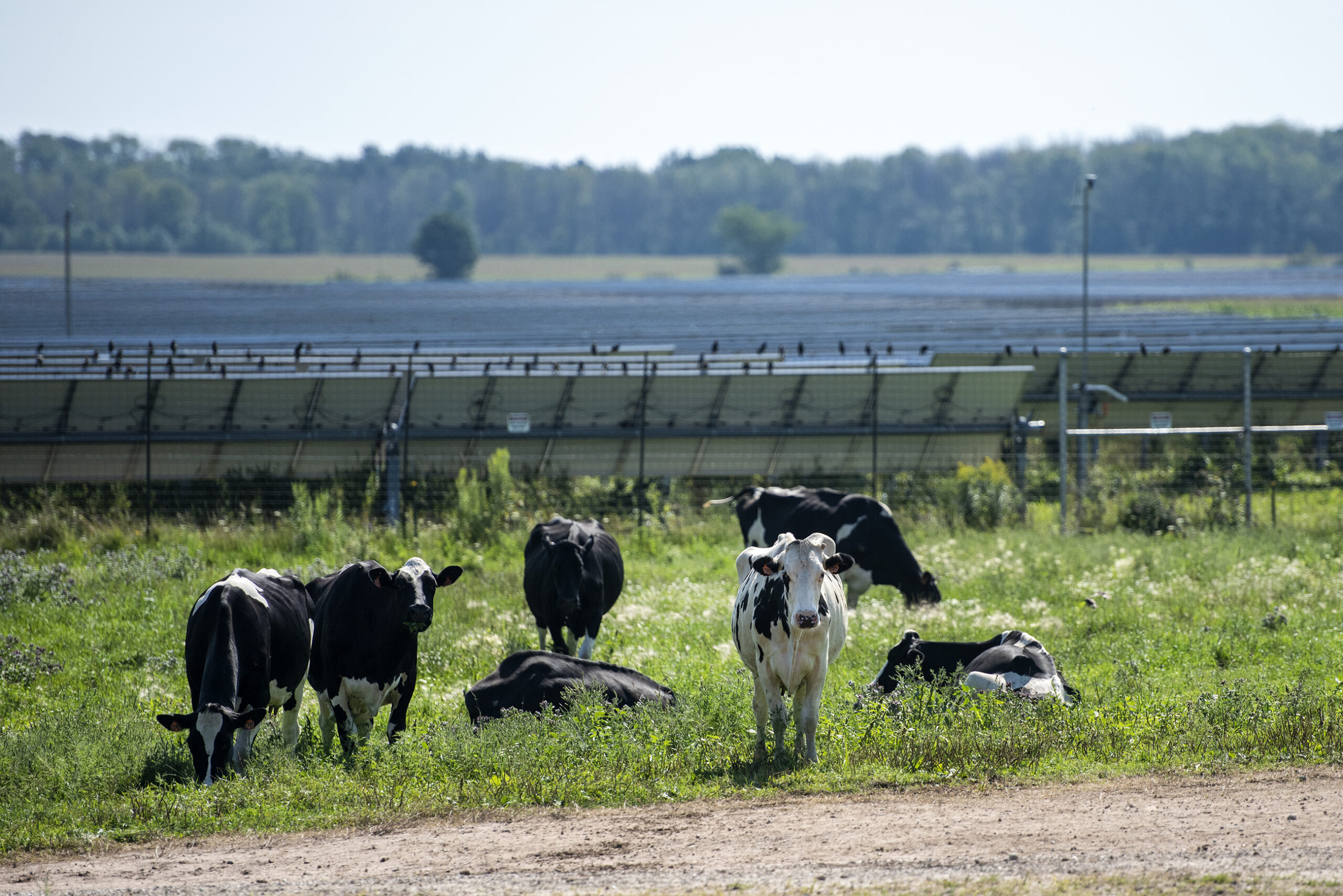A new group of bills in the state legislature aims to reduce homelessness in Wisconsin by creating an agency to address the problem and provide more grants to municipalities for their unique needs. We learn more about the proposals and talk with a guest who says they don’t go far enough. We find out why farming remains one of the most dangerous occupations and what’s being done about it. Plus, we talk to an expert about the politics of the death penalty, in light of Arkansas’ series of executions before one of the drugs required for their lethal injections expires.
Featured in this Show
-
The Dangers Of Farming
Death and injury rates for farmers are remarkably high. Our guest looks at the dangers of the farming profession and what changes are needed to make the profession safer.
-
Farming Remains One Of The Most Dangerous Jobs In America
Farming is one of the deadliest jobs in America.
The career is twice as deadly as law enforcement, five times deadlier than firefighting, and 73 times more deadly than Wall Street investment banking, according to the U.S. Bureau of Labor Statistics.
In Wisconsin, 25 percent of all workplace deaths in 2015 happened in the agriculture, forestry, fishing or hunting industries.
“Really, for many people in rural America who work on farms and know people who work on farms, injuries and death is something that really touches everybody,” Ian Kullgren said.
Kullgren, a labor and immigration reporter for Politico, wrote a piece earlier this month titled “Your farm is trying to kill you.”
“As a farmer, if you think about it, you’re working constantly with very, very dangerous machinery,” he said.
Farm equipment is more dangerous than many may think. Tractor rollovers alone are responsible for one-third of all farm deaths.
New tractors legally must be built with rollover protection devices, but the vast majority of tractors out there don’t have them.
“Farmers can keep tractors for decades,” Kullgren said. “Many, many tractors are 30, 40, sometimes even 50 years old on these farms.”
Many farmers work alone and in remote locations. If an emergency happens, ambulance response can be delayed.
Some have suggested tightening farm regulations or guidelines in an effort to make farms safer. But with thin business margins, policymakers worry increased safety requirements could force farms out of business.
Many farmers are also averse to that idea.
“By nature their culture and their belief system is very self-reliant and independent,” Kullgren said. “And the last thing they want is OSHA inspectors coming onto their land, especially land that has been passed down through generations.”
Last year, Minnesota added a program that helps farmers add rollover protection to tractors they already own. Some states require that rollover protection be retrofitted.
Farm safety regulations have been discussed in previous political campaigns, but efforts did not get off the ground. Federal action does not look to be on the horizon, Kullgren said.
-
Housing Advocates Applaud New Initiatives To Combat Homelessness In Wisconsin
After a unanimous vote, the state’s Joint Finance Committee passed two bills this week aimed at combating homelessness in Wisconsin. The bills, introduced by Republican lawmakers, have already garnered positive responses from housing advocates.
Joe Volk, executive director of the Wisconsin Coalition Against Homelessness, said it has been decades since the state decided to spend more on efforts to combat homelessness.
“I’ve been involved in this issue for a very long time, and this is the first time in about 25 years that any new resources have been proposed at the state level,” he said.
One bill would create an Interagency Council on Homelessness that would include eight secretaries from state agencies receiving funding to tackle homelessness as well as other representatives from other groups dealing with the issue in Wisconsin.
The formation of the council is a step in the right direction, said Carrie Poser, director of the nonprofit Wisconsin Balance of State Continuum of Care.
She said one of the benefits of the council will be that state players who sign off on measures to address homelessness will be sitting at the same table as people who are working in communities.
“I think that’s a fantastic step,” Poser said. “It certainly doesn’t provide funding right now to a shelter providing homeless services, but if we don’t bring all the people to the table … then we’re going to fund different things in silos and we’re not going to make some significant landscape change.”
The second bill passed by the budget committee would make $75,000 available to a municipality to pilot a program to help people facing homelessness find jobs. The bill is modeled after the “Better Way” program out of Albuquerque, New Mexico, which offers people without homes with work cleaning up public spaces.
But Poser said there are areas where she doesn’t believe the legislation goes far enough. She said more money needs to go into permanent supportive housing, case management and rapid rehousing funding. She also emphasized the need for measures that prevent someone from becoming homeless in the first place.
“There isn’t significant prevention funding available anywhere,” she said, adding that finding ways to aid someone before they become homeless instead of after can be tricky. But she said legislation should be able to “better earmark and understand what creates a situation in which someone would actually become homeless and then … intervene in an effective way that promotes ongoing housing stability.”
Some Democratic lawmakers said earlier this month the bills did not go far enough.
“It’s appalling that these cosmetic solutions are the best Republicans can muster to address Wisconsin’s homelessness epidemic,” said Rep. Melissa Sargent, D-Madison, in a statement.
Another Madison Democrat, Rep. Lisa Subeck, echoed that sentiment.
“People with no place to sleep tonight don’t have time to wait for a bureaucratic council or pilot program,” Subeck said.
The bills still await approval from the full state Legislature, and while Volk said he doesn’t expect a budget to be approved before June or July, he was still hopeful some of the new efforts to deal with homelessness would start to go into effect this year.
“We would hope that by late summer or early fall some of these new dollars and new initiatives — including the interagency council starting to meet — would hit the street and start making things better for people in Wisconsin that don’t have a home.”
Editor’s Note: WPR’s Laurel White contributed to this report.
-
The Politics Of The Death Penalty
On Monday night the state of Arkansas executed two inmates. It was the first time in seventeen years that any state has executed two people on the same day. These executions came as the state carries out a series of death penalties before one of the drugs used in its lethal injections expires. We talk to an expert about the politics of the death penalty, in light of this series of executions.
Episode Credits
- Rob Ferrett Host
- Veronica Rueckert Host
- Veronica Rueckert Producer
- Amanda Magnus Producer
- Veronica Rueckert Interviewer
- Ian Kullgren Guest
- Joe Volk Guest
- Austin Sarat Guest
Wisconsin Public Radio, © Copyright 2026, Board of Regents of the University of Wisconsin System and Wisconsin Educational Communications Board.


